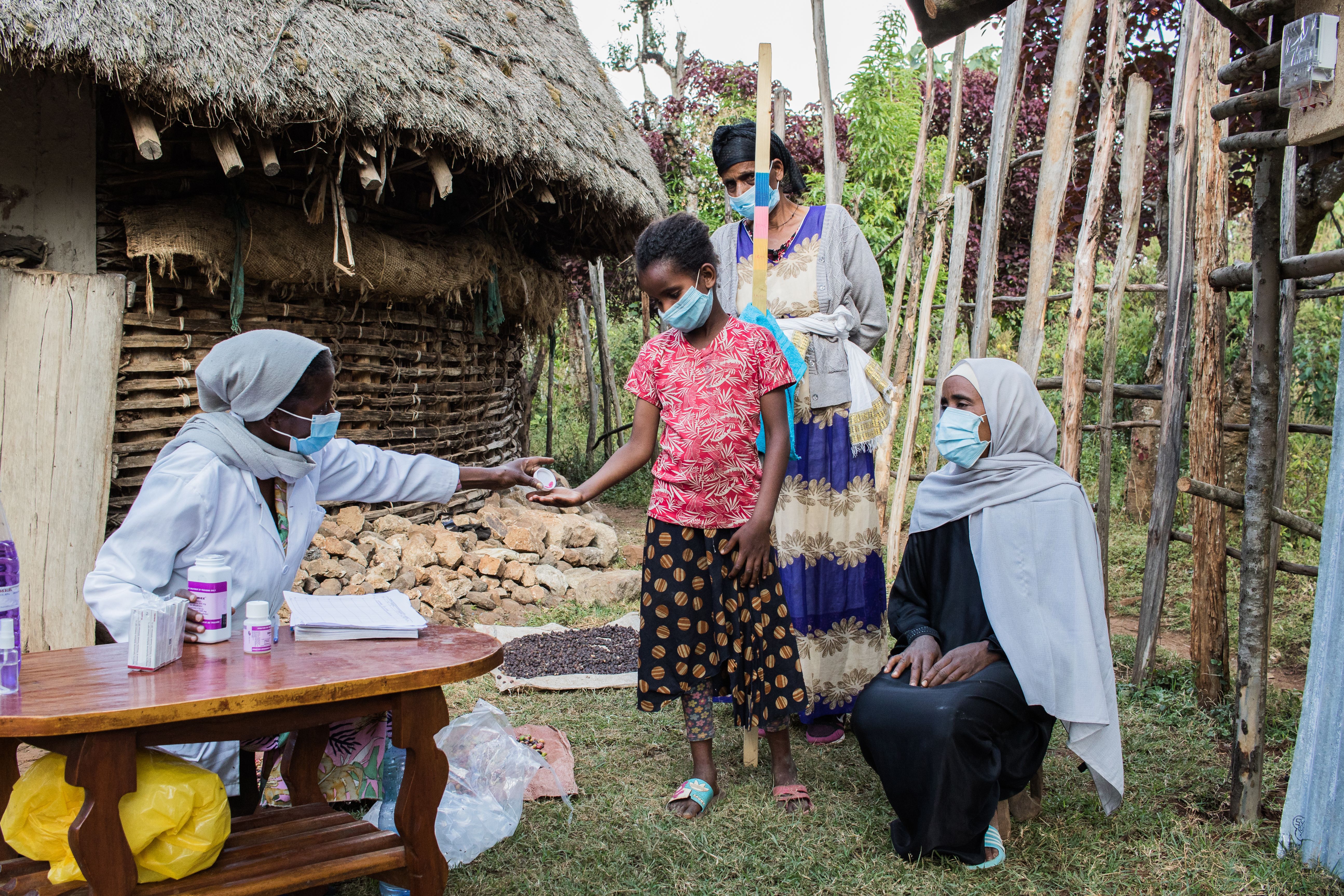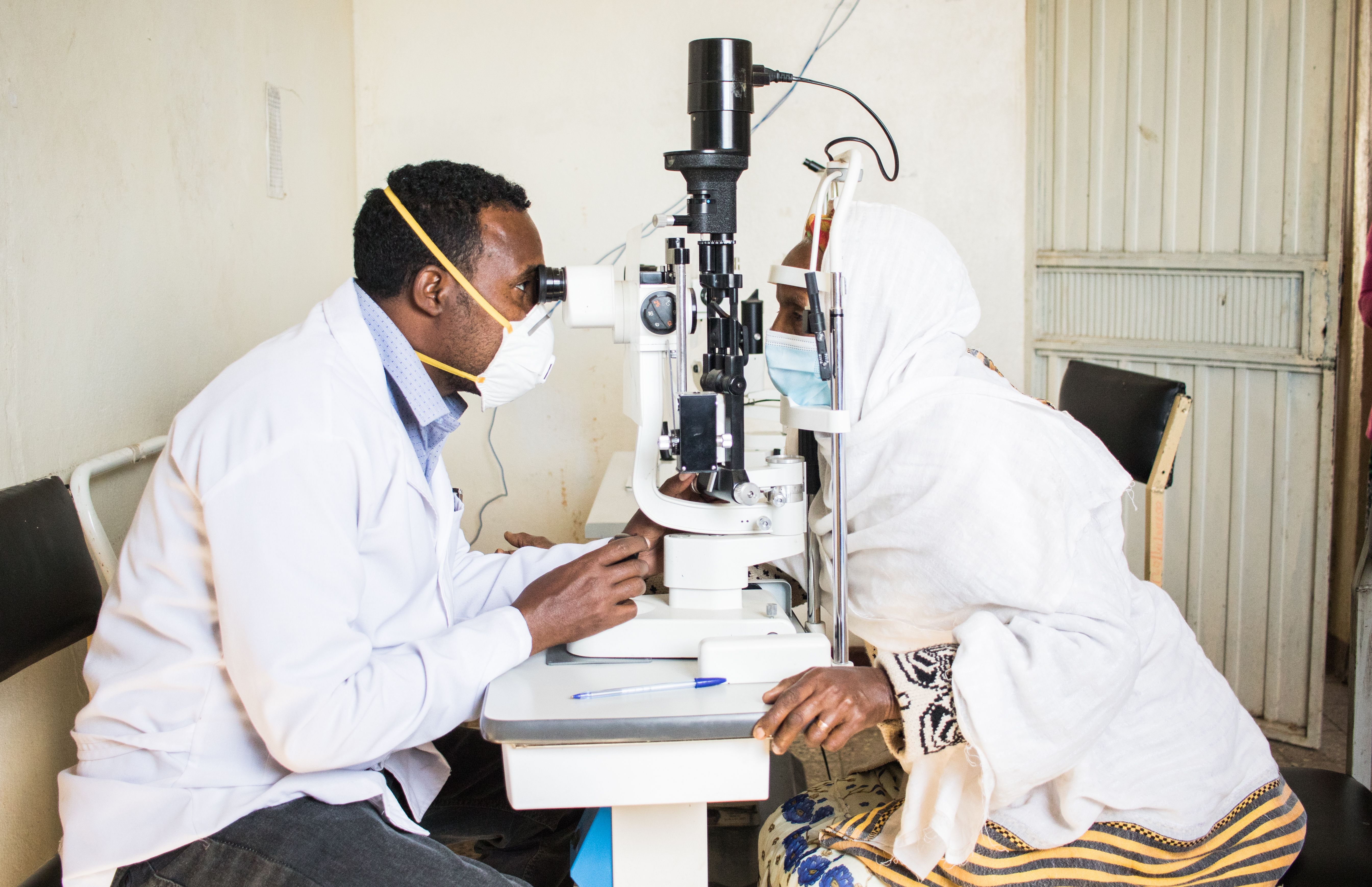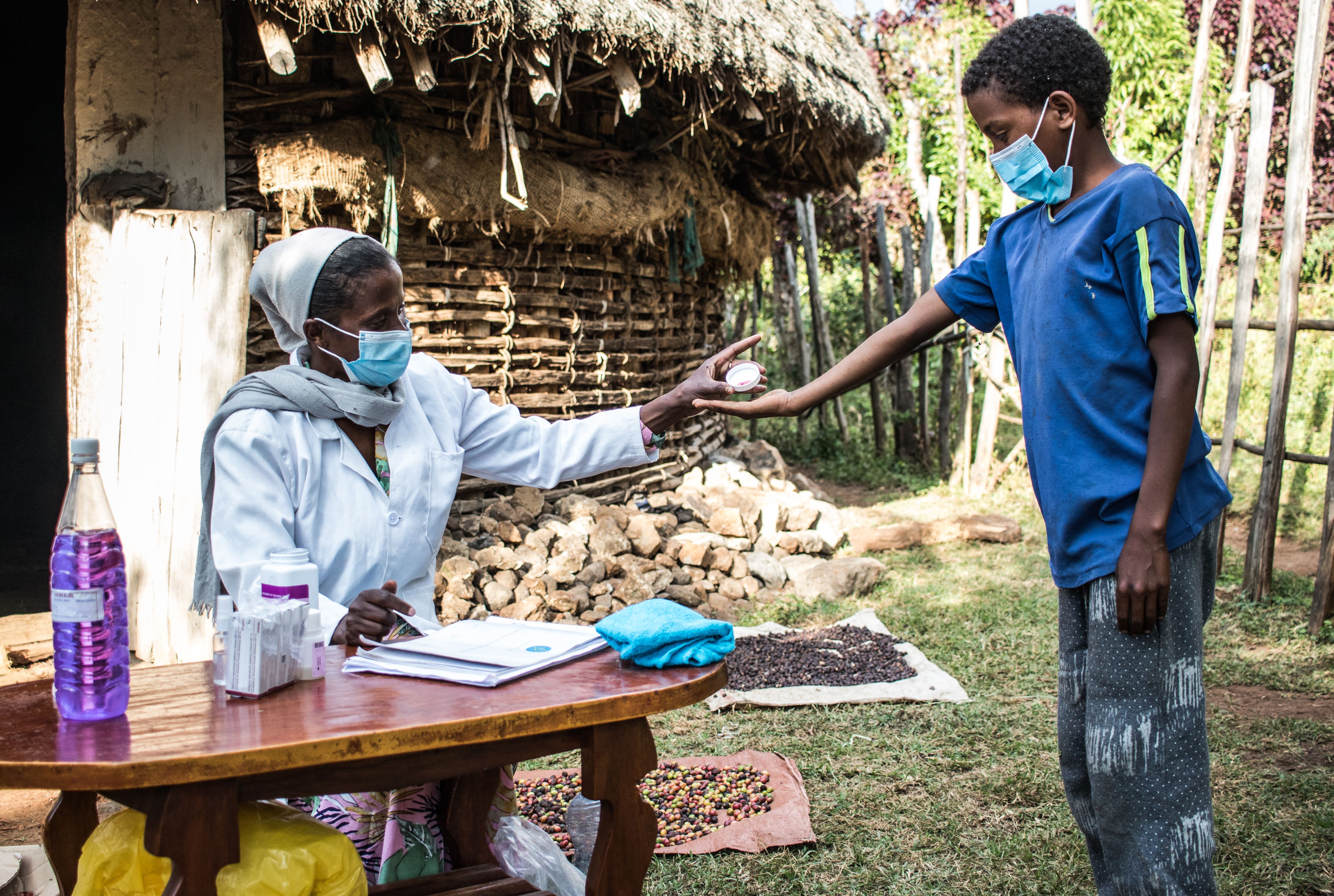Q&A: Orbis Ethiopia's Dr. Alemayehu Sisay talks World Neglected Tropical Diseases Day
Ahead of World Neglected Tropical Diseases (NTD) Day on Jan. 30, Alemayehu Sisay, MD, MPH, country director for Orbis Ethiopia, discusses efforts and progress the organization has made in treating patients with NTDs and how to get involved in recognizing World NTD Day.
Photo courtesy of Orbis International.

1. What is World Neglected Tropical Diseases Day — why is it important?
World Neglected Tropical Diseases (NTD) Day is an annual event that falls on January 30 and works to raise awareness and demand action to control and eliminate NTDs.
These largely preventable conditions primarily affect marginalized communities around the world and can lead to severe suffering and even lifelong impairment.
That is why our global nonprofit, Orbis, along with more than 300 other organizations, uses this day to celebrate the progress being made to help the 1.7 billion people whose lives are threatened every day by NTDs.
2. What work is Orbis currently doing to eliminate NTDs?
Of the NTDs, Orbis focuses on trachoma, a painful bacterial eye infection and the world’s leading infectious cause of blindness. It is estimated to affect 1.9 million people globally.
If left untreated, repeated trachoma infections can lead to trachomatous trichiasis (TT), a painful condition in which scarring causes the eyelid to turn in on itself and the eyelashes to scratch the front part of the eye.
Sisay

This will be our 23rd year of working to eliminate trachoma in Ethiopia. In collaboration with local partners, Orbis implements the WHO-recommended SAFE strategy (Surgery to correct trachomatous trichiasis; Antibiotics for the bacterium that causes trachoma; Facial cleanliness to reduce transmission; and Environmental improvement to reduce risk of transmission and infection).
Most recently, we administered nearly 9 million doses of trachoma-fighting antibiotics in just 1 month across 102 districts in Ethiopia’s Southern Nations, Nationalities, and People's Region (SNNPR), Sidama, and the new Southwest Region. Those doses are part of the over 12 million Orbis distributed in 2021.
In the past 23 years, Orbis has administered over 94.2 million doses of antibiotics to the community residing in the SNNPR and performed more than 190,000 sight-saving TT surgeries.
The disease still has a strong foothold in the region, but through our efforts, we have achieved the elimination threshold for trachoma in 38 districts across the region, as of 2021.
Photo courtesy of Orbis International.

3. How is Orbis working to support trachoma prevention and control?
Our work involves training frontline healthcare workers in Ethiopia to administer the antibiotics and training eye care teams to deliver the surgery and treatment needed to address TT. TT can be addressed with surgery in its early stages, but if it advances too far, the result is permanent vision loss. In 2021, we were able to perform more than 16,000 TT surgeries.
We’ve also prioritized preventing the infection from even occurring by promoting the importance of better hygiene, such as face washing and handwashing.
Our team educates community health workers, health extension workers, teachers, local women’s group leaders, and community leaders about eye health in hopes of improving people’s lives.
We also partner with WASH (Water, Sanitation and Hygiene) organizations to address the F and E components of the SAFE Strategy.
4. What have Orbis’s current research and efforts shown you?
Our team has been leading trachoma-related research. From 2017 to 2022, we conducted more than 160 trachoma impact and surveillance surveys across Ethiopia’s SNNPR.
In collaboration with the Global Trachoma Mapping Project (GTMP), the Federal Ministry of Health, SNNP Regional Health Bureau, and other partners, we helped conduct surveys that quantified the prevalence of trachoma across the entire SNNPR in 2013.
This research has been critical to tracking the progress in eliminating the disease and to target our prevention efforts most effectively.
Orbis is also working with renowned academic institutions on research to improve TT surgery management to reduce recurrence.
We know that women are disproportionately affected by trachoma; this is because of their roles as caregivers and, thus, close proximity to children, who have increased rates of the highly contagious infection. As a result, 70% of people with TT are women.
In some settings, women use surgical services less or may wait until TT is more advanced before having surgery, so we know that finding improvements to TT surgery can have a significant impact on women’s wellbeing in Ethiopia.
5. How has COVID-19 affected trachoma cases and Orbis’s ability to provide health services?
Before the pandemic, mass drug administration (MDA) campaigns took place in central locations in community settings in Ethiopia, but the social distancing guidelines that have been put into place to prevent the spread of COVID-19 have required that the Orbis team take a door-to-door approach in all MDAs since 2020.
We have also been providing our team members with personal protective equipment. These updated procedures have helped to ensure the safety of our team members and the community.
Photo courtesy of Orbis International.

The door-to-door process is nearly twice as time- and resource-consuming, but we continue our work because we know that missed doses can allow trachoma to regain a foothold. We also know how restoring vision changes lives and communities.
Plus, as we share hygiene tips with communities that help them prevent the spread of trachoma, they’re also learning best practices for protecting themselves against COVID.
6. Can you share any inspiring stories from the field?
We’ve had plenty of fulfilling stories from the field.
One, in particular, was from our recent MDA campaign, when one of our distribution teams met a mother of five named Tsehay. When they offered her antibiotics, they noticed that she had an early-stage TT infection.
Belaynesh, a Health Extension Worker on the team who has received training through Orbis on how to identify trachoma patients and conduct referrals, gave her an eye ointment and explained how to use it and also referred her to a local health center.
Tsehay said that it had been a while since she started to experience pain in both of her eyes. She was not able to seek medical help and thought the pain would just disappear in its own time.
Once she understood the risk of losing her sight and that her eyes could be easily treated to avoid her pain, she confirmed she would visit the health center to check on her eyes.
It’s a great example of how, even though home-to-home mass drug distribution is more time-consuming, we can guarantee that we are reaching every community member.
7. What are some ways in which the public can get involved for World Neglected Tropical Diseases Day this Sunday (January 30)?
We are incredibly delighted to see the significant progress being made to raise awareness of trachoma in hopes of ultimately eradicating the disease.
For World Neglected Tropical Diseases Day, we hope that others will get involved and help bring attention to these issues or fundraise to support communities affected by NTDs. For more information, check out worldntdday.org
/
Newsletter
Want more insights like this? Subscribe to Optometry Times and get clinical pearls and practice tips delivered straight to your inbox.